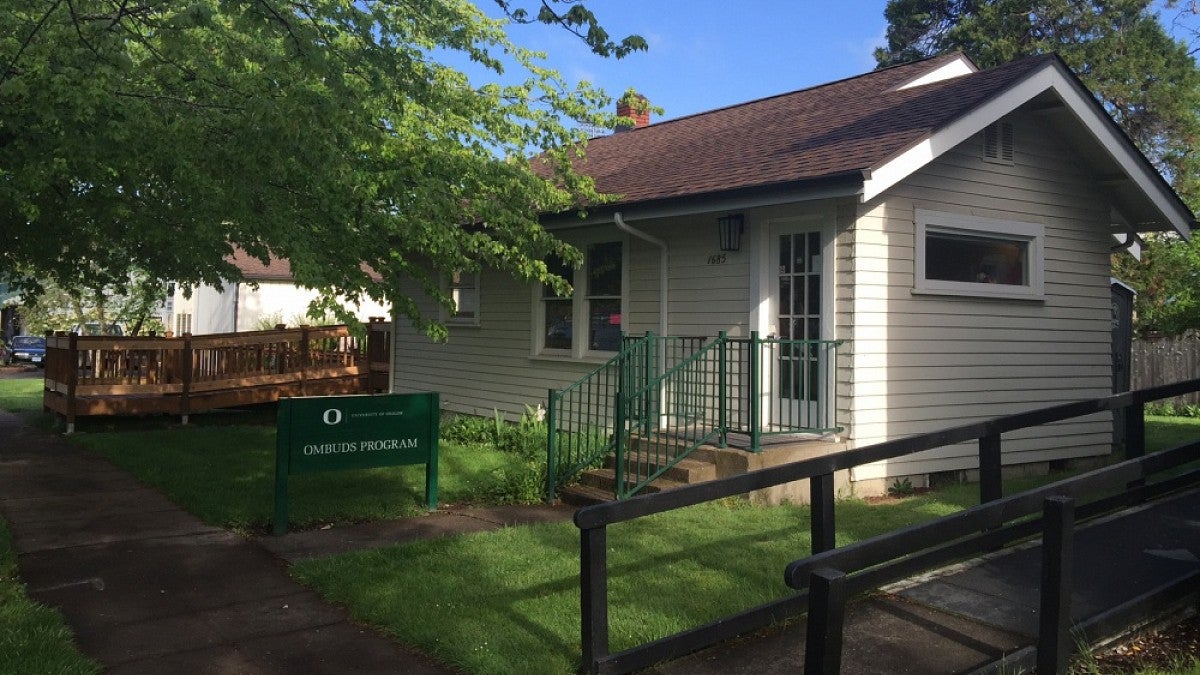The University of Oregon Ombuds Program has released its annual report for the 2020 fiscal year.
The report is available on the Ombuds Program website and provides an overview of the services provided during the last fiscal year including the number of cases, concerns, visitors and a breakdown of visitor affiliation.
The Ombuds Program provides confidential, impartial, independent and informal conflict management assistance to members of the university community. As a confidential resource, the program does not keep records of specific cases. The annual report includes nonidentifiable aggregate case data to report trends and topics that may be useful to campus partners, leaders and the university community.
In total, the program received 622 visitors and 943 concerns for the 2020 fiscal year. Cases from graduate students increased significantly, nearly doubling from 7.8 percent of total cases in 2019 to 14.9 percent in 2020. Cases from faculty members decreased by almost 6 percent while cases from staff increased by almost 5 percent.
Many of the trends the program reported were directly related to impacts of COVID-19 and widespread concerns over civil rights. Concerns around termination or position elimination, telework/flex work, physical working/living conditions, safety equipment and priority setting/funding increased substantially compared to 2019. In contrast, concerns about peers and colleagues in general and two of the leading subcategories for 2019, departmental climate and investigation processes and procedures, saw a notable decrease in 2020.
“The annual report serves not just to benchmark the concerns of faculty, staff and students in a given year but also to guide decision-makers and inform the campus community in general about the needs of the university and its constituents,” said Brett Harris, university ombudsperson. “Each year, we aim to provide nuanced data while still protecting the principles of ombuds service, including confidentiality.”
In addition, the annual report includes a summary of the findings from the ombuds’ first campuswide survey. The survey sought to collect feedback from anyone in the university community who had used the program’s services in the past three years. The survey received 204 responses and the Ombuds Program has used the survey feedback to develop an action plan to further meet visitors’ needs through ombuds services.
To read the full report or learn more, visit the Ombuds Program website.
—By Jesse Summers, University Communications


